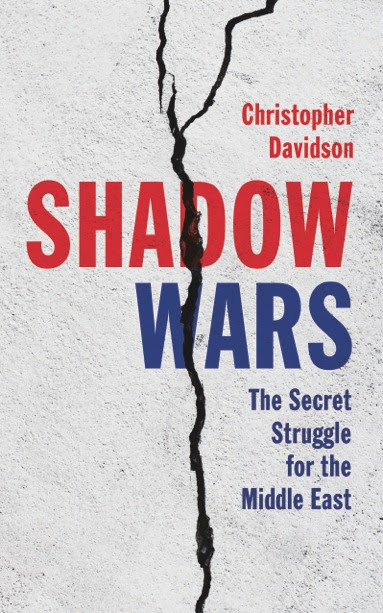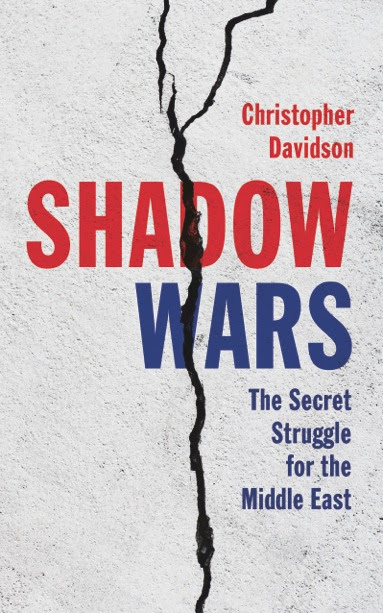By Christopher M. Davidson | (Informed Comment) | – –
Swept along on a tidal wave of euphoria, by spring 2011 many had cautiously begun to believe that the wave of Arab uprisings that had already managed to topple the regimes of Zine El Abidine Ben Ali and Hosni Mubarak would herald the dawn of a new era in which more progressive, secular, and perhaps even democratic states could finally be built from the ruins of tyranny. But hopes were dashed almost as soon as they were raised, and any remaining optimism quickly gave way to shock and dismay as resurgent religious politics, bloody counter-revolutions, and sectarian wars began to take hold. To make matters worse, not only were the ideals of the so-called “Arab Spring” left lying in tatters, but its failures somehow seemed responsible for the rise of ever more repressive dictatorships, the return of Al-Qaeda and, with the “Islamic State,” the emergence of one of the most brutal incarnations of Islamic extremism the world had ever seen.

Christopher M. Davidson, Shadow Wars: The Secret Struggle for the Middle East Order now
Forlorn, dispirited, and resigned to an Arab world doomed to fail, activists and scholars inevitably began to ask, “What went wrong?” After all, if parts of Europe, Latin America, and even Africa once managed to cut the shackles of authoritarianism, then why not the Arabs? Moreover, and more urgently, many asked why the region’s predominant and essentially peace-promoting Islamic faith had once again proven so vulnerable to co-option and subversion by powerful fanatics, even in the twenty-first century. Both are important questions deserving responses and an explanation, not only because an honest and thorough post-mortem of the Arab Spring is needed, but because those who genuinely aspire to a brighter future for the region must be better prepared to identify the real root causes behind its perennial afflictions.
Beginning at the beginning, the answers put forward in Shadow Wars first take the readers on a little time travel, not only to establish the causes of the Arab Spring, but also to help understand how it sits in history. Drawing on hundreds of recently declassified and leaked files, court subpoenaed documents, and interviews with former intelligence officials, I demonstrate that the events of 2011 and the subsequent counter-revolutions were in many ways nothing new, and I show how important elements of each have frequently surfaced in what is best understood as a centuries-old and worldwide pattern of popular challenges and autocratic reactions. Importantly, these struggles were rarely limited to just one country or a region’s elites and their opponents, but instead were often a function of the inextricably interlinked interests of influential foreign powers and their local clients. In some cases, when threats to the status quo were especially severe, this even led to multinational counter-revolutionary coalitions involving volatile mixes of competing empires allied to on-the-ground despots, feudal dynasties, and conservative clerics. Tragically for the resource-rich and strategically vital Middle East, such efforts have been particularly pronounced, especially in the wake of its first major oil exports – crucial to global energy supplies – and its subsequent centrality to Cold War proxy power struggles.
With the stakes getting ever higher, and arguably now still greater than in any other part of the developing world, it is a little easier to appreciate the considerable lengths taken by those both inside and outside the region to protect their positions and their unfettered access to its wealth. In some cases, the familiar fingerprints from covert campaigns littered across the twentieth century, from Malaya to Iran to Nicaragua, can easily be found in the Arab world today. In others, however, there are signs of older and much darker strategies having been rekindled, including those that have enlisted and wilfully cultivated the most fundamentalist religious forces so as to suppress progressive movements and reverse efforts to found independent nations more capable of controlling their own resources and destinies.
In this context, Shadow Wars’ most forceful argument, and the one that will prove most unsettling for citizens of the Western world, is that the primary blame for not only the failure of the Arab Spring, but also the dramatic and well-funded rise of Islamic extremist organizations since the late twentieth century – including the deadly al-Qaeda and now the blood-curdling Islamic State – must rest with the long-running policies of successive imperial and “advanced-capitalist” administrations and their ongoing manipulations of an elaborate network of powerful national and transnational actors across both the Arab and Islamic worlds. As I also contend, the post-2011 threat to present-day Western states and their constituent corporations from potentially self-determining revolutionary Arab nations such as Egypt and Tunisia has not only been largely foiled, but has also been covertly redirected into a pretext for striking at other enemies such as the historically antagonistic Libyan and Syrian regimes, both of which have long sought to disrupt and block Western involvement in the region. In this sense, hidden behind ever more carefully layered veils of agents and local proxy powers – which has helped reduce the need for further direct interventions – the same powers that have distantly ruled the region for more than a hundred years are now making sure their grip gets even tighter.
Christopher Davidson is a reader in Middle East Politics at Durham University in the UK. His new book, SHADOW WARS, will be published in the US on November 15 by Oneworld Publications. Follow him on Twitter @dr_davidson.



 © 2025 All Rights Reserved
© 2025 All Rights Reserved